Zapara featuring in a German TV Documentary, titled:
Der Kampf um den Regenwald
Ecuador, das Öl und Amazonien
broadcast 10 August 2010 12:30 on Phoenix TV, a state-owned documentary channel
without advertisements. (a bit like C-Span, only much much better)
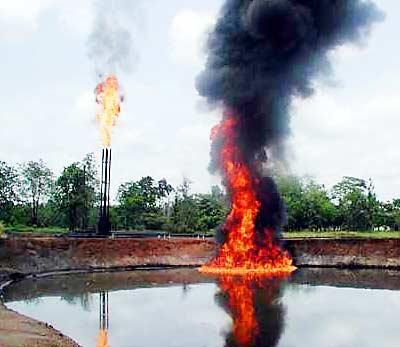
The Struggle for the Rainforest
Ecuador, the oil and Amazonia
Documentation by Stefan Schaaf, ARD-Studio Mexico
"We fight it alone against all," says Marlon Santi, a Quechua Indian from Ecuador. He lives in the village Sarayaku, which fights for years against international oil companies that want to develop the Amazon region.
A trip through Ecuador's rain forest, in the footsteps of indigenous people who fight for the soul of this magical area. The beautiful are ideal world of the Amazon is long gone, the forest is threatened. 1,500 kilograms of explosives have been buried by the oil companies around Sarayaku.
A few hundred miles northeast of the jungle even more contaminated - in the region of Lago Agrio is promoted for forty years of oil. Ecuador has risen now the fourth largest oil exporter in Latin America. In 45 million hectares of nature reserves located in the rainforest, international oil companies have taken root and promote the precious raw material.
"Do not weep for the Amazon, Texaco tank you" as is graffiti on the walls of houses in the capital, Quito - the oil draws devastating environmental damage, but oil companies like Texaco refused so far to remedy the damage. In this part of the rainforest, there is an apocalyptic atmosphere - ground water contamination, half of all rivers contaminated, the disease in the population increased rapidly.
But they still experienced, wonderful encounters in the forest - such as the People of the Zapara. Early in the morning they sit together in front of their tents and tell their dreams. This they drink chicha, a light manioc beer, and interpret their nocturnal visions. Those who can not dream of telling the Zaparas may not go well through the day.
GERMAN TELEVISION is right-leaning.
Anti-capitalist views are not represented (fairly)
Stefan Schaaf knows this. If he would report in a fair manner, he would be terminated (from his job) very quickly!
An apt comment:
Much FARC, something Escobar and a democratic constitutional state, that is the image that conveyed the ARD correspondent Stefan Schaaf in his article on Sunday broadcast. Schaaf, who runs the ARD studio in Mexico City shows that very one-sided Colombia-image convey the corporate media in this country much.
His movie, entitled "Terror in Colombia. Of hostages and rebels," he starts with the liberation of Ingrid Betancourt from the hands of FARC. No word on the cause while breaking the Geneva Convention by the Colombian army. Rather, Schaaf viewers a clear positive image of Colombia's president, who was responsible for the liberation of the Colombian-French politicians. No word on the right-wing Uribe's policies, no word about the connection between Uribe's policies and the paramilitaries. Paramilitaries are only mentioned briefly once and then only when the opponent of the guerrillas. With no mention Schaaf victims of state violence policy: trade unionists, leftist opposition to the government like to be known as guerrillas and stigmatized.
With this contribution Schaaf made it clear that he deserves his salary, in terms of a pro-government reporting.
Other broadcast dates for Phoenix:
01.24.2009, 11:00 clock Ι Sun, 25.01.2009, 07:30 clock Ι Sun, 25.01.2009, 18.00 clock
A very different picture provided Colombia Renate Werner directly following in their documentary "No bread for oil". There were government-approved evictions of peasants, the murder of those just mentioned by right-wing paramilitaries and opposition politicians. This post will not be repeated.
So one can expect in this report, no word on U.S. responsibility for the hunger and misery in Haiti.
NO WORD! NOT ONCE A hint!
After the earthquake in Haiti
In the ruins of Port-au-Prince,
http://www.tagesschau.de/multimedia/bilder/sendungsbild326420_v-teaserfarbig3x1.jpg
When the massive earthquake in Haiti more than half of the houses and roads were destroyed or damaged in the capital. Even the presidential palace and the cathedral collapsed. Before the few remaining hospitals are killed and injured in the streets.
By Stefan Schaaf, ARD Mexico, ZZT. Port-au-Prince, Haiti
http://www.tagesschau.de/multimedia/bilder/sendungsbild327668_v-teaserfarbig3x1.jpg
STUDIO MANAGER
since June 2007 Stephan Schaaf is a correspondent in the studio ARD Mexico.
Born in Cologne, studied in Munich, POLITICAL SCIENCE.
1982 to 1984 he lived in the U.S..
mein ausland: Der Kampf um den Regenwald
Ecuador, das Öl und Amazonien

Dokumentation von Stefan Schaaf, ARD-Studio Mexiko
Gerne spricht man von der "grünen Lunge" der Welt, wenn man an Amazonien denkt - das Gebiet rund um den riesigen Amazonas-Strom. Die grüne Lunge?
"Wir kämpfen doch allein gegen alle", sagt Marlon Santi, ein Quechua-Indianer aus Ecuador. Er lebt in dem Dorf Sarayacu, das sich schon seit Jahren gegen internationale Ölfirmen wehrt, die das Amazonas Gebiet erschließen wollen.
Eine Reise durch Ecuadors Regenwald, auf den Spuren der Ureinwohner, die um die Seele dieses magischen Gebiets kämpfen. Die schöne heile Welt des Amazonas gibt es schon lange nicht mehr, der Urwald ist bedroht. 1.500 Kilogramm Sprengstoff sind von den Ölfirmen rund um Sarayacu vergraben worden.
Ein paar hundert Kilometer weiter nordöstlich ist der Urwald schon kontaminiert – im Gebiet vom Lago Agrio wird seit vierzig Jahren Öl gefördert. Ecuador ist mittlerweile zum viertgrößten Erdöl-Exporteur Lateinamerikas aufgestiegen. In 45 Millionen Hektar großen Naturschutzgebieten mitten im Regenwald haben sich internationale Ölfirmen eingenistet und fördern den kostbaren Rohstoff.
"Weine nicht um den Amazonas, du tankst Texaco" steht als Graffiti an den Hauswänden in der Hauptstadt Quito – die Ölförderung zieht verheerende Umweltschäden nach sich, doch Ölfirmen wie Texaco weigern sich bislang, diese Schäden zu beseitigen. In diesem Teil des Regenwaldes stellt sich Endzeitstimmung ein – das Grundwasser kontaminiert, die Hälfte aller Flüsse verseucht, die Krankheiten bei der Bevölkerung sprunghaft angestiegen.
Aber man erlebt sie doch noch, traumhafte Begegnungen im Regenwald – etwa bei dem Volk der Zapara. Früh morgens setzen sie sich vor ihren Hütten zusammen und erzählen sich ihre Träume. Dazu trinken sie Chicha, ein leichtes Maniok-Bier, und deuten ihre nächtlichen Visionen. Wer nicht träumen kann, sagen die Zaparas, kann auch nicht gut durch den Tag gehen.
DEUTSCHES FERNSEHEN ist RECHTSLASTIG.
(denn antikapitalistische Sichtweisen werden nicht fair dargestellt!)
Stefan Schaaf weiß dies natürlich. Wenn er fair berichtete, wäre er ganz schnell gekündigt!)
Ein zutreffender Kommentar dazu:Viel FARC, etwas Escobar und ein demokratischer Rechtsstaat, das ist das Bild, welches der ARD-Korrespondent Stefan Schaaf in seinem
am Sonntag ausgestrahlten Beitrag vermittelte. Schaaf,
der das ARD-Studio in Mexiko-Stadt leitet, zeigt eben jenes einseitige Kolumbien-Bild, das die bürgerlichen Medien hierzulande gern vermitteln.
Seinen Film mit dem Titel "Terror in Kolumbien. Von Geiseln und Rebellen" beginnt er mit der Befreiung Ingrid Betancourts aus den Händen der FARC. Kein Wort über
den dabei verursachten Bruch der Genfer Konvention durch die kolumbianische Armee. Vielmehr zeigt Schaaf den Zuschauern ein deutlich positives Bild des kolumbianischen Präsidenten, der für die Befreiung der kolumbianisch-französischen Politikern verantwortlich zeichnete. Kein Wort über die rechtsextreme Politik Uribes, kein Wort über die Verbindung zwischen Uribes Politik und den Paramilitärs. Paramilitärs werden nur kurz mal erwähnt und dann auch nur als die Gegenspieler der Guerilla. Mit keinem Wort erwähnt Schaaf die Opfer der staatlichen Gewaltpolitik: Gewerkschafter, linke Oppositionelle, die von der Regierung
gerne als Guerilleros bezeichnet und stigmatisiert werden.
Mit diesem Beitrag machte Schaaf deutlich, dass er sein Gehalt verdient hat, im Sinne einer regierungsfreundlichen Berichterstattung.
Weitere Sendetermine auf Phoenix:
24.01.09, 11.00 Uhr Ι So, 25.01.09, 07.30 Uhr Ι So, 25.01.09, 18.00 Uhr
Ein deutlich anders Kolumbien-Bild lieferte Renate Werner direkt im Anschluß in ihrer
Dokumentation "Kein Brot für Öl". Dort wurden staatlich gebilligte Vertreibungen von Kleinbauern, die Ermordung eben jener durch rechte Paramilitärs und oppositionelle Politiker erwähnt. Dieser Beitrag wird jedoch nicht wiederholt.
So kann man auch in diesem Bericht kein Wort zur USA Verantwortlichkeit für Hunger und Elend in Haiti erwarten.
KEIN WORT! NICHT EINMAL EINE ANDEUTUNG!
Nach dem Erdbeben in Haiti In den Trümmern von Port-au-Prince

Bei dem schweren Erdbeben in Haiti wurden mehr als die Hälfte der Häuser und Straßen in der Hauptstadt zerstört oder beschädigt. Auch der Präsidentenpalast und die Kathedrale sind eingestürzt. Vor den wenigen erhaltenen Krankenhäusern liegen Tote und Verletzte in den Straßen.
Von Stefan Schaaf, ARD Mexiko, zzt. Port-au-Prince, Haiti

STUDIOLEITER
seit Juni 2007 ist Stephan Schaaf ARD Korrespondent im Studio Mexiko.
Geboren in Köln, studierte in München POLITISCHE WISSENSCHAFTEN.
von 1982 bis 1984 lebte er in den USA.
related News, today 10 august 2010
Juan Manuel Santos has been sworn in as Colombia's new president, replacing Álvaro Uribe. Santos served as Uribe's defense minister. In one of his first moves as president, Santos called for Colombia to improve relations with its neighbors.
Juan Manuel Santos: "One of my main goals as president will be to rebuild the relationships with Venezuela and Ecuador, to reestablish the trust, diplomacy and prudence."
Colombia's new president Juan Manuel Santos is scheduled to meet with Venezuelan President Hugo Chávez on Tuesday.
Fidel Castro Addresses Cuban National Assembly
In Cuba, former president Fidel Castro addressed the Cuban National Assembly on Saturday for the first time in four years. He focused much of the speech on the threat of nuclear war. Castro warned that US pressure against Iran could trigger a devastating nuclear conflict.
Fidel Castro: "The United States would be ordering the instant death not just of hundreds of millions of people—amongst them, an incalculable number of residents of their own country—but also of the crew members of all the United States' naval ships in the waters around Iran."
Mexican Journalists Call for Government Protection of the Press
Over 700 Mexican journalists marched on Saturday to demand that the Mexican government crack down on murders, kidnapping, disappearances and threats against the media. Journalists carried a banner listing the names of sixty-four journalists who have been murdered since 2001.
I have a copy of the documentary, please leave a COMMENT below if you need it
.
keywords: avi download mp4 torrent p2p share runterladen transcript volltext
 Stumble It!
Stumble It!
 Stumble It!
Stumble It!
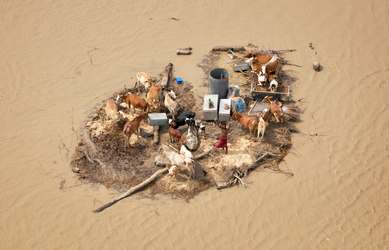
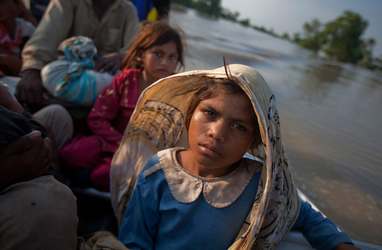
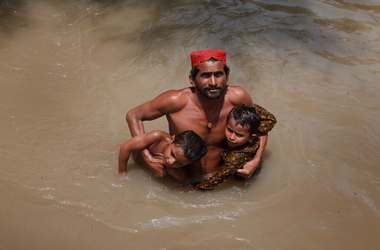
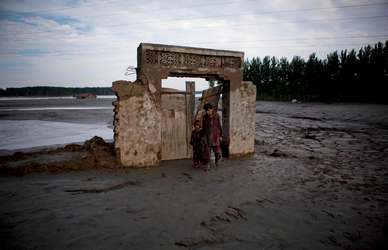
-793901.jpg)
-795760.jpg)
-797473.jpg)
-758904.jpg)
-760038.jpg)
-718379.jpg)
-719682.jpg)

-712652.jpg)

-746822.jpg)
-712483.jpg)
-770888.jpg)
-721881.jpg)
-755025.jpg)






